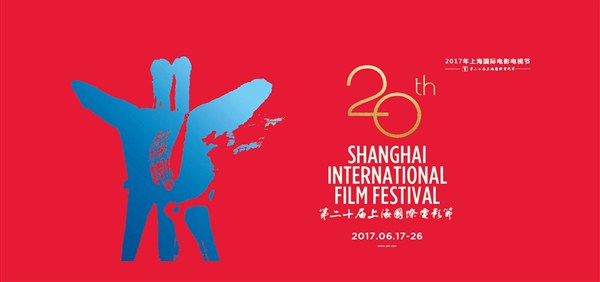
今日上海
上海电影节再续二十年光影梦 - 2017年06月23日
SIFF reaches landmark with 20th edition

THE Shanghai International Film Festival is back. When the curtains go up tonight, the only Category A international film festival in China will be celebrating its 20th edition.
And for the first time in its history, the Golden Goblet Awards ceremony will be followed by a day of public screening of the winning pictures.
The festival runs until June 26.
The festival has witnessed the development of China’s film industry, which is now drawing more attention worldwide. It also offers a platform for global cooperation and cultural exchange.
Chinese cinema has experienced rapid development in the past decades. Last year, the box office in China totaled 45.7 billion yuan (US$6.72 billion). Domestic productions earned more than 26.6 billion yuan, contributing 58.3 percent to the total revenues. Industry experts believe the coming decade will be a golden age for China’s film industry.
To mark its 20th edition, an exhibition about the festival’s history and achievements is being held at 20 venues spread across the city, including cinemas, shopping malls and subway stations.
The exhibition will display historic photos, posters and lists of winning movies and artists over the last two decades. Local film enthusiasts are encouraged to share their own dreams about motion picture and stories related to the festival at a composition event.
At the festival’s awards ceremony on the evening of June 25, the Rainbow Chamber Singers will perform some of the age-old classics to take the audience down memory lane. Three short films about the city’s connection with movies will also be screened at the ceremony.
Shanghai was the cradle of Chinese cinema, delivering some of the powerful films ever made in the country. The Shanghai film festival has also thrown up new talents while supporting original film projects.
The SIFF Project, in its 11th year now, has endorsed many creative homegrown movies, including “The Piano in a Factory,” “Black Coal, Thin Ice” and “Lost in White.” Some of the productions have won awards at overseas film festivals.
This year, the project will invite veteran film producers to deliver talks to young filmmakers about scripting, pitching, production and marketing of movies.
Shanghai Daily spoke to some of the creative brains with experience in the running, planning and organization of the Shanghai film festival.
Shen Yang
The producer of the Golden Bear award-winning film “Black Coal, Thin Ice” was involved with the Shanghai event’s organizing committee for over 10 years. She helped launch the SIFF Project a decade ago when she found young filmmakers and scriptwriters in China struggling to turn their dreams into reality.
“I started to work for the festival as early as 2000, when it only had two major events — the main film competition and the international film exhibition,” she recalls. “At that time there was also a sharp downturn in the domestic film industry. Later we developed programs of master class, film forum, Asian New Talent Award and SIFF Project that led to an upturn in the industry in the following decade.”
Shen says her experience with the organizing committee gave her a global vision. After attending many international film festivals, Shen says the Shanghai event now has a complete structure of programs. But to attract top-notch filmmakers with their latest offering, it is necessary to develop a more professional platform to market, promote and distribute films.
Wang Jiayan
Ever since the first Shanghai International Film Festival in 1993, Wang Jiayan, a film distribution and marketing specialist, has been involved in the selection of the films for the festival. He is also responsible for the film screenings at local cinemas.
“The film festival is rapidly developing with new exchange programs and an increasing number of audiences,” Wang says. “It used to have only 11 screening rooms at eight theaters, but this year we have 53 at 45 theaters.”
He admits it is a challenge to schedule the 1,500 screenings. To begin with, he has to watch all or most of the films being screened.
The festival, in his eyes, is still young. He hopes that it can develop its own distinctive characteristics in the future and cater to movie buffs of varied ages and backgrounds. He also expects the festival to incubate more good film stories and projects, and continue to foster young film talents of the country.
Li Tian
The film expert and former adviser to the Shanghai International Film Festival used to shoot documentaries about the festival. This year he is involved in the organization of the film party.
Li used to queue up many years ago to buy tickets to movies that had not been released in China. This year he has bought tickets for Woody Allen’s 1979 classic “Manhattan.” A decade ago he saw the film on VCD. It was also his first impression of Manhattan.
“The festival satisfies my personal preference for movies,” Li says. “After many years, it has now developed into a cultural brand of Shanghai with diversified and influential programs.”
He also wants the festival to incorporate the latest technologies into its eye-catching events such as the red carpet and the awards ceremony. He says the festival can also develop an interactive app to give the audiences an immersive experience of the event.

